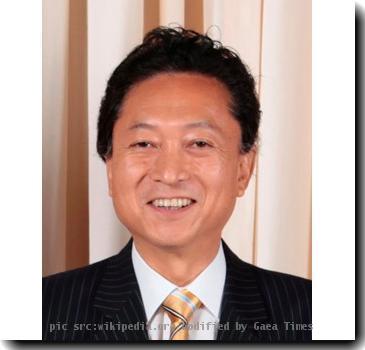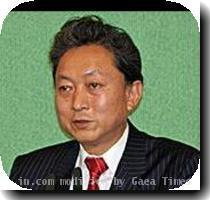Japan ruling party suffers heavy defeat in upper house, exit polls show; hurt by tax hike talk
By Mari Yamaguchi, APSunday, July 11, 2010
Japan ruling party loses on tax talk: exit polls
TOKYO — Battered by voter backlash over the prospect of higher sales taxes, Japan’s ruling Democratic party suffered a heavy defeat in parliamentary elections Sunday, media exit polls showed, dealing a blow that could hinder the government’s ability to control soaring debt.
The projected losses were worse than expected and will make it difficult for Prime Minister Naoto Kan’s young government to effectively tackle serious problems confronting the world’s second-largest economy, from reining in its bulging deficit, reviving growth, and support a rapidly aging population.
The projected results indicate that the ruling coalition lost its 122-seat majority in parliament’s upper house. The election won’t directly affect the Democrats’ grip on power because they control the more powerful lower house of parliament.
But it does raise the serious prospect of gridlock.
“It’s bad news for Kan and the party, and its really bad news for the nation because it means there isn’t going to be resolute action on all the festering problems facing the government,” said Jeff Kingston, director of Asian studies at Temple University in Japan. “And that’s got global repercussions.”
A fiscal hawk and social progressive, Kan warned immediately after taking office last month that unless Japan took dramatic steps it could face a Greece-like fiscal crisis — a comparison experts say is exaggerated.
But his proposal to possibly double Japan’s 5 percent sales tax in coming years clearly hurt his party’s chances in the elections, where half the upper house’s 242 seats were up for grabs.
Kan acknowledged that the proposal led to the losses and said he had brought up the topic abruptly and without enough explanation.
But he declared that he isn’t quitting.
“While taking the results seriously and humbly, I’ll make a fresh start and continue on to carry out a responsible political management,” Kan told a late night news conference.
Public broadcaster NHK predicted that the Democratic Party of Japan won between 43 and 48 contested seats in the upper house, down from 54 before the polls. Other TV stations made similar projections. Kan had set a target of keeping those 54 seats.
The Democrats’ tiny coalition partner, the Peoples’ New Party, got no seats, the exit surveys showed.
Official results were not expected until Monday.
Kan said that he isn’t immediately seeking new coalition partners. Analysts said that without new partners or a cooperative relationship with another party or two, the Democrats will likely face difficulties passing bills and pushing their agenda to cut government spending and put more cash in the hands of consumers.
Kan’s job appeared to be safe for now, analysts said, though they added that his leadership might be challenged at the party’s general meeting in September.
The defeat is a stunning rebuke for the Democrats, who stormed to power last August amid high hopes for change and transparency in government, unseating the conservative Liberal Democratic Party that had ruled Japan for most of the post-World War II era.
But voters became disillusioned with the Democrats even before Kan brought up the tax hike issue.
While the Democrats scored points for freezing many public works projects viewed as wasteful, the public was sorely disappointed by former Prime Minister Yukio Hatoyama’s involvement in a funding scandal and his failure to keep a campaign promise to move a contentious U.S. Marine base off the southern island of Okinawa. Hatoayama quit last month.
“People are desperate for change and reform, and none of the parties are delivering,” said Kingston. “I think that they’re profoundly skeptical and disappointed. And that’s the message they sent tonight.”
The LDP, now the main opposition party, appears to have done better than expected, winning 48 to 50 seats, according to predictions. That would give them 81 to 83 seats in the chamber, up from 71 before the election.
A possible partner for the Democrats is the newly formed Your Party, made up of LDP defectors who champion smaller government. It was projected to win about nine seats, polls showed.
Kan saw his initially high support ratings drop after his tax hike proposal, prompting him to backpedal somewhat on the issue.
In the waning days of the campaign, Kan promised that any tax increase wouldn’t happen until after the next lower house election, which must be held within three years, saying he wanted a public mandate for any decision on taxes.
Japanese newspapers praised Kan in Sunday commentaries for being brave enough to bring up the possibility of higher taxes, but the damage appeared to have been done among voters who are struggling in a stagnant economy with high joblessness.
“People had very high hopes of the Democrats, and they feel betrayed,” said Tomoaki Iwai, political science professor at Nihon University in Tokyo. “They wanted cleaner politics, and there were money scandals… The Democrats tend to talk the talk, but they haven’t backed it up.”
Iwai also said it would be difficult for the Kan’s party to push through with its agenda.
“I think we are looking at a very complicated situation ahead,” he said.
Associated Press Writer Eric Talmadge and Malcolm Foster contributed to this report.
Tags: Asia, East Asia, Japan, Parliamentary Elections, Political Issues, Political Organizations, Political Parties, Political Scandals, Tokyo, Yukio Hatoyama

